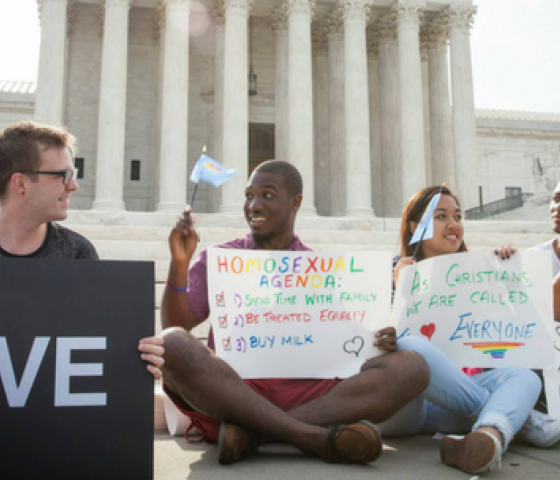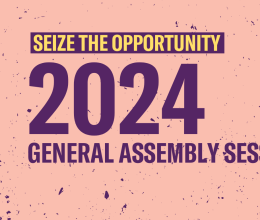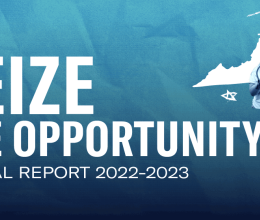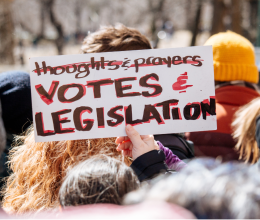By Kent Willis, Executive Director, ACLU of Virginia
In August 1965, five months after the infamous beatings of non-violent civil rights marchers in Selma, Alabama, President Lyndon Johnson signed the landmark Voting Rights Act into law.
In the four decades since its passage, the act has come to be regarded as one of the most successful civil rights laws in our nation’s history, and with good reason. Prior to its enactment, there were fewer than 300 African Americans in public office in the United States, virtually none of whom were in the South. Today, there are nearly 300 in Virginia alone and more than 9,000 nationwide, including 43 members of Congress, one of whom proudly represents our Commonwealth.
Virginia is replete with successful Voting Rights Act stories. Less than 25 years ago in Hopewell, for example, African Americans were effectively shut out of city politics, holding no elected offices. Although they comprised 20% of the city’s population, the discriminatory design of Hopewell’s election plan made it mathematically impossible for minorities to be elected to public office.
Under the Voting Rights Act, Hopewell drew a racially fair electoral plan, and the first African American was elected to office in the mid-1980s. After the release of the 1990 census data, Hopewell’s city council, again adhering to the requirements of the Voting Rights Act, drew up yet another election plan. During the next election cycle, two African Americans were elected to city council.
Then in 1998, Hopewell’s still overwhelmingly white city council did the unthinkable: In a city that had prevented any minority from holding elected office from Reconstruction to the mid-1980s, they voluntarily elected an African American to be their mayor.
Like most political jurisdictions, Hopewell is not without its problems. But thanks to the Voting Rights Act, its minority citizens today have a real voice in the governance of the community where they live and work.
There are many Hopewell-like success stories in Virginia, and hundreds across the country. But the work of the Voting Rights Act is not yet done. Many state and local governments still erect barriers to minority political participation, and the risk of losing the gains we have made is great.
Armed with documentation of continuing discrimination, Congress has voted four times since 1970 to extend key parts of the law that were set to expire. These actions have been endorsed by Presidents Nixon, Ford, Reagan and George H.W. Bush, each of whom signed the renewed provisions of the Voting Rights Act.
On approving the 1982 extension, President Ronald Reagan called the right to vote the “crown-jewel” of American liberties.
In July of this year, Congressman James Sensenbrenner, Republican chairman of the House Judiciary Committee, said, “The Voting Rights Act must continue to exist -- and exist in its current form.” Sensenbrenner further pledged that he would soon be introducing bipartisan legislation to extend the act for another 25 years. “We cannot let discriminatory practices of the past resurface to threaten future gains,” he declared.
In light of the history of discrimination that minorities have experienced when voting, the proven effectiveness of the Voting Rights Act, and the clearly documented need to continue to protect minority voters, Congress should follow the Chairman’s lead. Here’s what should be done:
First, Congress must renew the Section 5 pre-clearance requirements for 25 years, exactly as it did in 1982. These provisions require designated states ( Virginia included) and localities with a history of discriminatory voting practices to submit proposed changes in their election procedures to federal officials for pre-approval.
Second, Congress should renew the language assistance provisions of Section 203 so that new citizens and other Americans with limited command of English can receive assistance when voting. Prior to the enactment of Section 203 in 1975, language minorities lacked essential tools to ensure fundamental fairness in voting.
Third, Congress should renew the sections of the Act that authorize the Attorney General to appoint election monitors and poll watchers.
Fourth, the law needs to be strengthened in several other ways. The cost of voting rights litigation, which is often prohibitive, could be brought down by providing for the recovery of expert fees. Congress should also repair the damage to Section 5 caused by two recent U.S. Supreme Court cases. One of these cases undermines Section 5 by permitting election plans even where there is intentional discrimination, so long as minority voters are not technically made worse off than they were before. The other ruling creates vague standards for how minority voters can be spread around into neighboring voting districts. As a result, minority communities may face severe difficulties in electing the representatives who most closely share their values and concerns.
At a time when America has staked so much of its international reputation on the need to spread democracy around the world, it is essential that Congress reauthorize and strengthen the Voting Rights Act to ensure the vitality of democracy here at home.
NEW
Federal court rules transgender middle schooler can play






